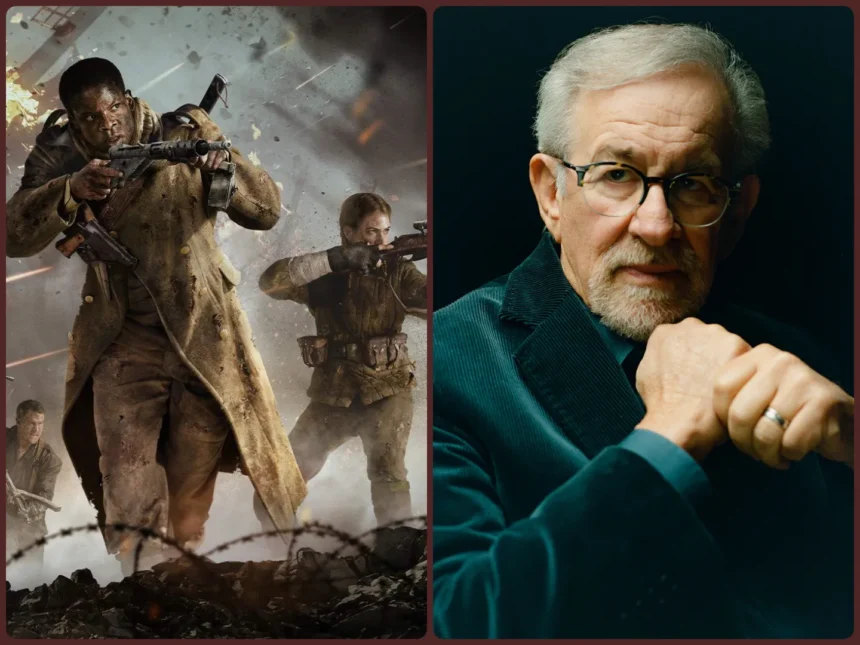It was the kind of Hollywood story that should have ended with a handshake and a press release: Steven Spielberg, the architect of Saving Private Ryan and Band of Brothers, wanted to bring Call of Duty—one of the most successful video game franchises in history—to the big screen. He was a fan. He had a vision. He even had a deal structure, the infamous “Spielberg Deal,” which would have given him final cut, full creative control, and a payday befitting a legend.
But Activision said no.
Instead, the company inked a partnership with Paramount Pictures, a studio riding high on the success of Top Gun: Maverick and eager to expand its gaming IP slate under the leadership of David Ellison, a self-professed Call of Duty superfan. The official announcement dropped on September 2, 2025, confirming that Paramount will develop, produce, and distribute a live-action Call of Duty film, with both studios promising to honor the franchise's “rich narrative and distinctive style” while expanding its universe to new audiences.
So, why turn down Spielberg? The answer is as much about power as it is about pixels.
The Pitch That Scared Activision
According to multiple reports, Spielberg and his Amblin team, backed by Universal dealmaker Jimmy Horowitz, presented Activision with a pitch that was classic Spielberg: ambitious, hands-on, and uncompromising. The director, a known gamer and Call of Duty enthusiast, wanted to helm the project himself, bringing his signature blend of visceral action and emotional depth to the franchise. But his terms—the “Spielberg Deal”—included top-tier compensation, final cut, and full oversight of production and marketing.
For Activision, now under Microsoft's umbrella, that was a bridge too far. The company wanted more control, more oversight, and a partner willing to collaborate rather than dictate. Paramount's pitch, led by Ellison, offered just that. “With Paramount, we have found a fantastic partner who we will work with to take that visceral, breathtaking action to the big screen in a defining cinematic moment,” said Rob Kostich, President of Activision.
It's a gamble. Call of Duty isn't just a game—it's a cultural juggernaut, with over 500 million copies sold and a global fanbase that spans generations. The franchise's latest installment, Black Ops 7, is set to drop on November 14, 2025, and the series shows no signs of slowing down. But translating that success to film is a different kind of mission.
Why This Matters for Fans and Filmmakers
The rejection of Spielberg's pitch isn't just a footnote—it's a statement. Activision and Paramount are betting that a collaborative, studio-driven approach will yield a film that satisfies both hardcore fans and newcomers. Ellison, who has spent “countless hours” playing Call of Duty, called the project a “dream come true” and emphasized the responsibility of adapting such a beloved property.
But the road to a successful video game adaptation is littered with cautionary tales. For every The Last of Us, there's a Borderlands—a reminder that even the most promising IPs can stumble on the big screen. Paramount's track record with gaming adaptations is mixed: the Sonic films were hits, but the Halo TV series was canceled after two seasons. The studio is clearly doubling down, though, with Ellison steering Paramount toward high-profile gaming IPs as part of its post-Skydance merger strategy.
And then there's the Spielberg factor. The director's absence leaves a void—not just in star power, but in the kind of cinematic gravitas that could have elevated Call of Duty beyond the usual “video game movie” tropes. His war films, from Schindler's List to 1917, are masterclasses in tension, character, and spectacle. A Call of Duty film under his guidance might have been something truly special.
What's Next for the Call of Duty Movie?
As of now, no director, cast, or release date has been announced. The project is in its earliest stages, with Paramount and Activision focusing on “honoring the brand's rich narrative” and delivering an experience that thrills both fans and newcomers.
But the clock is ticking. The gaming landscape is evolving, and so are audience expectations. With Black Ops 7 on the horizon and the franchise's 22nd anniversary approaching, the pressure is on to deliver a film that feels authentic, exciting, and worthy of the Call of Duty name.
Key Takeaways
| Takeaway | Details |
|---|---|
| Spielberg's Rejected Pitch | The legendary director wanted full creative control, but Activision opted for more oversight. |
| Paramount's Win | The studio's deal with Activision was announced on September 2, 2025, with David Ellison leading the charge. |
| Franchise Stakes | Call of Duty has sold over 500 million copies; the film must satisfy a massive, passionate fanbase. |
| No Director or Cast Yet | The project is in early development, with no release window or creative team attached. |
| Gaming Adaptations Are Risky | Paramount's mixed track record (Sonic vs. Halo) adds pressure to get this right. |
Final Thought: A Missed Opportunity or a Smart Bet?
Was turning down Spielberg a mistake? Maybe. But Activision's decision reflects a broader shift in how gaming IPs are adapted: studios want control, collaboration, and a say in how their properties are brought to life. Whether that approach pays off remains to be seen.
One thing is certain: the Call of Duty movie will be watched as closely as a sniper's scope. And if it fails to hit its mark, fans won't hesitate to call it a miss.











